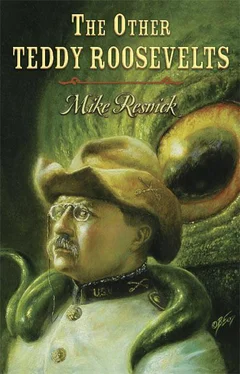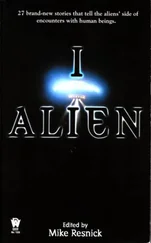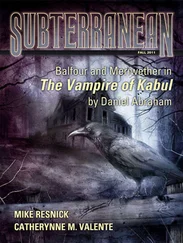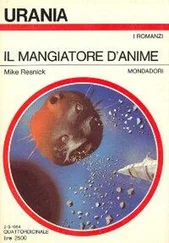* * *
William Howard Taft, the sitting President (and Roosevelt’s hand-picked successor), of course wanted to run for re-election. Roosevelt was the clear choice among the Republican rank and file, but the President controls the party’s machinery, and due to a number of procedural moves Taft got the nomination. Roosevelt, outraged at the backstage manipulations, decided to form a third party. Officially it was the Progressive Party, but after he mentioned that he felt “as fit as bull moose”, the public dubbed it the Bull Moose Party. Not everyone was thrilled to see him run for a third term. (Actually, it would have been only his second election to the Presidency; he became President in 1901 just months after McKinley’s election and assassination, so though he’d only been elected once, he had served in the White House for seven years.) One such unhappy citizen was John F. Schrank. On October 14, 1912, Roosevelt came out of Milwaukee’s Hotel Gillespie to give a speech at a nearby auditorium. He climbed into an open car and waved to the crowd — and found himself face-to-face with Schrank, who raised his pistol and shot Roosevelt in the chest. The crowd would have torn Schrank to pieces, but Roosevelt shouted: “Stand back! Don’t touch that man!” He had Schrank brought before him, stared at the man until the potential killer could no longer meet his gaze, then refused all immediate medical help. He wasn’t coughing up blood, which convinced him that the wound wasn’t fatal, and he insisted on giving his speech before going to the hospital. He was a brave man…but he was also a politician and a showman, and he knew what the effect on the crowd would be when they saw the indestructible Roosevelt standing before them in a blood-soaked shirt, ignoring his wound to give them his vision of what he could do for America. “I shall ask you to be as quiet as possible,” he began. “I don’t know whether you fully understand that I have just been shot.” He gave them the famous Roosevelt grin. “But it takes more than that to kill a Bull Moose!” It brought the house down. He lost the election to Woodrow Wilson — even Roosevelt couldn’t win as a third-party candidate — but William Howard Taft, the President of the United States, came in a distant third, capturing only eight electoral votes.
* * *
That was enough for one vigorous lifetime, right? Not hardly. Did you ever hear of the River of Doubt? You can be excused if your answer is negative. It no longer exists on any map. On February 27, 1914, at the request of the Brazilian government, Roosevelt and his party set off to map the River of Doubt. It turned out to be not quite the triumph that the African safari had been. Early on they began running short of supplies. Then Roosevelt developed a severe infection in his leg. It got so bad that at one point he urged the party to leave him behind. Of course they didn’t, and gradually his leg and his health improved to the point where he was finally able to continue the expedition. Eventually they mapped all 900 miles of the river, and Roosevelt, upon returning home, wrote another bestseller, Through the Brazilian Wilderness . And shortly thereafter, the Rio da Duvida (River of Doubt) officially became the river you can now find on the maps, the Rio Teodoro (River Theodore). He was a man in his mid-fifties, back when the average man’s life expectancy was only 55. He was just recovering from being shot in the chest (and was still walking around with the bullet inside his body). Unlike East Africa, where he would be hunting the same territory that Selous had hunted before and Percival knew like the back of his hand, no one had ever mapped the River of Doubt. It was uncharted jungle, with no support network for hundreds of miles. So why did he agree to map it? His answer is so typically Rooseveltian that it will serve as the end to this chapter: “It was my last chance to be a boy again.”
Original Publications:
“Bully” — Asimov’s , 1991
“The Bull Moose at Bay” — Asimov’s , 1991
“Over There” — Asimov’s , 1992
“The Light That Blinds, the Claws That Catch” — Asimov’s, 1992
“The Roosevelt Dispatches” — F&SF , 1996
“Redchapel” — Asimov’s, 2001
“Two Hunters in Manhattan” — The Secret History of Vampires, 2007
“The Unsinkable Teddy Roosevelt” — Oval Office Oddities, 2008










